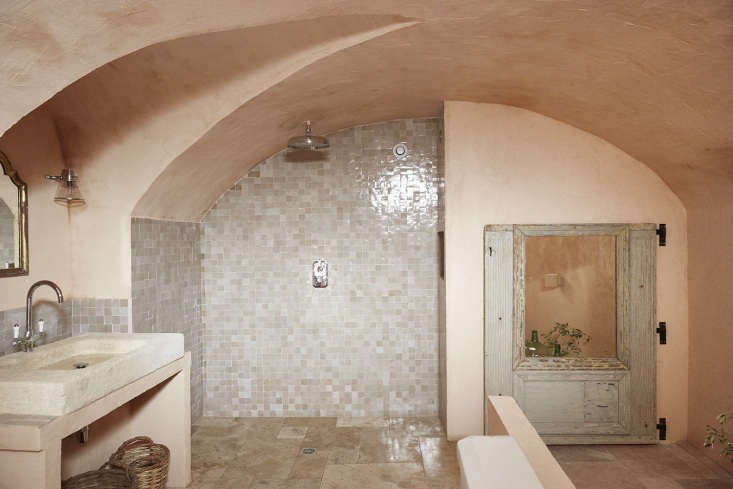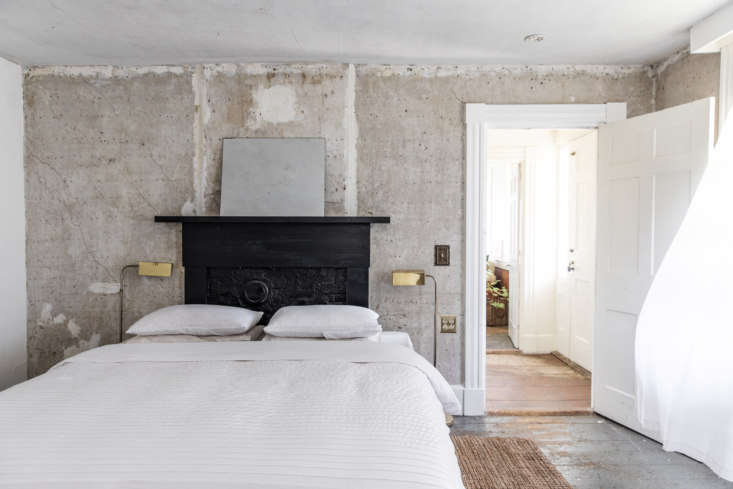As I write this, I’m sitting at the table of an Airbnb in Provence, France. It’s the eighth Airbnb that my husband and I have stayed in over the past nine weeks (we are on a six-month-long European sojourn). A decade ago we would not have been able to do this sort of trip. Then we would have had two options for lodging—a hostel or a hotel—and with either option it’s unlikely we would have been able to work remotely. I have never been more grateful for something like Airbnb, despite the inherent safety issues and the company’s policies when it comes to legal recourse, not to mention the occasional dud (or disaster) of a rental. I like that I can book on the fly, communicate on the app, cook in a kitchen, live among locals, and check in and out with relative ease. Over the last nine weeks, I’ve been on the Airbnb site a lot, and I’ve learned a few lessons (and a couple of hacks) for booking and staying in an Airbnb. Here’s what I found.

1. Safety first.
Last year Airbnb cited 4 million listings worldwide, which means, of the 18 or so pages of results for a single city at a given time, only about half will be suitable for your needs. (Think of it like Expedia, an aggregator of listings, rather than a brand you can blindly trust.) You have to do your research just as much as, if not more than, you did in the days of yore. Unlike a hotel, individual listings are homes and apartments that aren’t always standardized for safety. (If you want to read more on the risks, see the essay by Zak Stone, whose father died in an Airbnb and the New York Times coverage of it.) Check for items such as “fire extinguisher” on a listing or “smoke alarm” and “carbon monoxide detector,” things that Airbnb calls “amenities.” In Europe, we’ve found that most homes don’t have smoke alarms and CO detectors (in one apartment, the host had one, but it was covered in dust and didn’t work). We actually bring our own, a First Alert Combination Alarm for $28 on Amazon, and a pair of double A batteries to pop in when we check in to the house. Better safe than sorry.
2. Use search filters.
Besides the date, number of guests, home type, and price, use the “More Filters” section to narrow down your search results. Staying for over a week? You might want to make sure there’s a washer. Traveling to Mexico in August? Air-conditioning could be good. Driving by car? See if there’s free parking. Working remotely or looking to stream Netflix? Wi-Fi is key (no guarantees on its quality though).

3. Learn how hosts can hack the algorithm.
Airbnb, like Google, is a search platform, and like Google, operates on SEO (search engine optimization). What this means for you as an Airbnb renter is somewhat less important than what it would mean for you as an Airbnb host, but I suggest reading this article from And Chill about the search algorithm, and this article from Medium about the pricing algorithm: You’ll get a better understanding of why you’re seeing the listings you’re seeing—and not others.
4. Check the listing twice.
I’ve found you can learn a lot by reading the listing description very carefully. You can tell if a host is going to be hypersensitive or too laissez-faire by their writing and what’s buried within the house rules section. If the listing has “Smoking Allowed” checked, you need to know that the house might smell of cigarettes—fine for some, not fine for others. Same goes for “Pets Allowed,” which could be great if you’re traveling with your pet, and not great if you have allergies.

5. Read through all reviews.
It’s important to read through, or at least skim, every single review on a listing to get a better picture of the house you are about to book. Often fellow Airbnb-ers will explain the location (particularly from a tourist’s perspective) and the nuances of the house better than the Airbnb host. Keep in mind that you’re not always getting the whole story from a single review either. What to do if you find negative reviews on a listing? If there are many of them, probably safe to move on. If there are one or two, look to see if the host has responded and addressed the issue in a courteous manner.

6. If you have questions, ask the host.
I find that if you have a question, it’s always good to shoot a message to the host before booking or requesting to book. For instance, you can’t always tell what floor an apartment is going to be on, or if they have a working elevator—and that can be critical information when you’re traveling with four bags (don’t judge us, we’re here for six months!). On a few occasions, a host has even given us a price discount, which they can offer from within the app, just for getting in touch.
7. Tap the Google Maps “street view” feature.
Airbnb uses the Google Maps API within each listing to show you the general neighborhood you’ll be staying in. I advise opening the map and dropping the “Yellow Man” into that area to get a street view of the surroundings. Then do a separate search of the neighborhood for a quick read on what you’re getting into. It’s always good to know if there’s a quick bite nearby, if there are too many bars, if the area is “hip” or “safe” according to various blogs and message boards.

8. Use the “Saved” lists section.
If you use Airbnb often, it’s worthwhile to compile good-looking listings into a series of tidy Pinterest-like lists, courtesy of the site’s “Saved” section. (I have a bunch of them: Tangiers in July, Shepherd Huts, Ménerbes Two Week Stays, Condesa Apartments, and more.) It’s good to keep them cleaned-up because as you’re searching and saving, Airbnb will create new lists for you automatically. Unless a list is specific to an upcoming trip, remove the dates of check in/check out so that listings availabilities don’t reorganize your list.
9. Pass it on.
A good Airbnb can be hard to come by, and at times, hard to find with a search (see No. 3), so share your Saved lists with your friends. You can do this by inviting them to your list in the settings, or changing the privacy from “Invite Only” to “Everyone” and sending them the URL. I’ve found some great places thanks to friends who can vouch for them.

10. Be kind and review.
Leave the type of review that you would find useful yourself, one that’s accurate and includes insider-y information—things such as the quality of the Wi-Fi or a neighborhood’s walkability—that can help others in the same position.
For more ideas on vacation rentals, see our posts on Remodelista:






Have a Question or Comment About This Post?